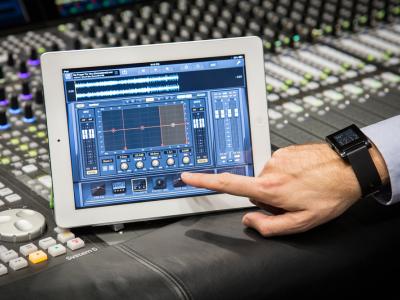What does an Interactive Media Specialist do?
Because this is an emerging field, and because they do so many different things for so many different employers, it’s difficult to sum up what interactive media specialists do for a living. Some are web developers on the cutting edge of interactive web design. Others are mobile app developers, web marketers, or innovative content creators who use tools such as 360-degree video, live streaming, and online polling to engage audiences. Ultimately, everything at the intersection of cutting-edge media and digital audience interaction is their purview.
What connects all interactive media specialists is a desire to use cutting-edge tools to create interactive media experiences that engage and immerse audiences in new and unexpected ways.
If you use an interactive online web application to tour a museum without leaving the house, or visit it in person and discover a downloadable AR app that enhances the experience, chances are high that these were designed by an interactive media specialist. Similarly, an interactive media specialist might work with an online education program to design a virtual classroom interface, with a business to develop a site-specific AR app as part of a marketing campaign for a new product, or with a fast-food chain to refine the interactive ordering software used in new touch-screen kiosks. While interactive media specialists focus on front-facing development—audience experiences—they might also create tools that aid employees.
At a Glance
Most interactive media specialists stumble into the field after designing an app, website, web application, or other interactive program for a business or school project, or discovering a knack for using tools like live streaming on social media. What interactive media specialists can offer businesses is essentially what web developers offered in the early 2000s: the chance to get ahead of (or on top of) a coming interactive media wave. As such, skilled specialists are in tremendously high demand for projects at top companies all over the world, and could even find permanent positions with marketing and advertising firms.
Many interactive media specialists are freelancers who move from project to project at different businesses and nonprofits. Others are entrepreneurs who seek funding for their own ideas and found startups. A small number of organizations with a particular interest in interactive media might hire specialists full time, such as web-based businesses, museums, and advertising firms.
- Digital media
- Software design (particularly app design)
- Web development (programming)
- AR/VR programming
- Video editing
- Video game design
- Marketing and branding
- HTML
- ASP
- CSS
- JavaScript
- Adobe Creative Suite
What connects all interactive media specialists is a desire to use cutting-edge tools to create interactive media experiences that engage and immerse audiences in new and unexpected ways. These tools are constantly changing, but the basic skills aren't: serious programming prowess, an awareness of the latest media technology, a knack for marketing and branding, and a natural sense of how disruption and interactivity can be used to deepen a digital or physical experience.
While most interactive media specialists are freelance contractors or self-employed entrepreneurs, some are full- or part-time employees of large companies with a focus on web and app design or marketing. For the most part, interactive media specialists work from a desk, but some positions include opportunities to escape the office for creative ventures, such as shooting a live or VR video.









